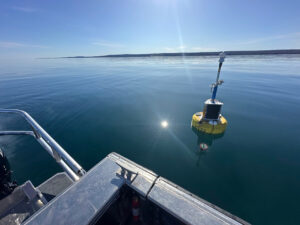Extech DL160 Dual Input AC Voltage/Current Datalogger
The Extech Input AC Voltage/Current Datalogger simultaneoulsy measures two AC voltage inputs or two AC current inputs.
Features
- Datalogs up to 256,000 readings
- LCD indicates time/date, current readings and min/max
- Readings can be downloaded to PC via the USB interface
- Free ground shipping
- Expedited repair and warranty service
- Lifetime technical support
- More
The Extech Dual Input True RMS AC Voltage/Current Datalogger simultaneously measures two AC voltage inputs or two AC current inputs, or one AC voltage and one AC current input. The instrument datalogs up to 256,000 readings with user programmable sampling rates from 1 second to 24 hours. Readings can be downloaded to a PC via the USB interface and analyzed using the included software or exported to a spreadsheet. The LCD screen indicates time/date, current readings, and max/min data points.
- AC current range: 10 to 200A
- AC current resolution: 0.1A
- AC current basic accuracy: ±(2% rdg ± 1A)
- AC voltage range: 10 to 600V
- AC voltage resolution: 0.1V
- AC voltage basic accuracy: ±(2% rdg ± 1V)
- Memory: 256,000 points
- Sampling rate: 1 second to 24 hours
- PC interface: USB includes software
- Power: 4 x AAA batteries
- Dimensions: 4.5 x 2.5 x 1.3" (114 x 63 x 34mm)
- Weight: 8.7oz (248g)
- (1) Datalogger
- (4) AAA batteries
- (2) Memory 2032 button batteries
- (1) Universal AC adapter
- (2) Current sensor modules
- (2) Voltage sensor modules
- (2) Sets of test leads
- (2) Sets of alligator clips
- (1) USB cable
- (1) Softare CD-ROM, for use with Windows OS
- (1) Carrying case
In The News
Save our Bogs! Culture, Conservation and Climate Action in Ireland’s Peatlands
Characterized by long-term accumulation under waterlogged conditions, peatlands exist on every continent and account for 3-4% of the global land surface . Small but mighty, these often overlooked wetland environments are estimated to hold as much as one-third of the world's organic carbon in their soil—twice the amount found in the entirety of the Earth's forest biomass. While healthy peatlands can trap and store carbon, regulate water, and provide important habitats for rare species, human alteration has disturbed peatland carbon and nitrogen cycles on a global scale. Approximately 12% of the world’s peatlands have been drained and degraded through conversion for agriculture, forestry, infrastructure development, and other uses.
Read MoreSargassum Surge: How Seaweed is Transforming our Oceans and Coastal Ecosystems
Until recently, Sargassum –a free-floating seaweed–was distributed throughout the Sargasso Sea , the north Caribbean Sea, and the Gulf of Mexico. But in the space of a decade, this seaweed has, as one scientist remarks , “Gone from a nonfactor to the source of a terrible crisis.” Driven by climate change, anomalous North Atlantic Oscillation in 2009-2010 and a glut of anthropogenic pollutants, sargassum has proliferated. Seasonally recurrent mats as deep as 7m now bloom in the “Great Atlantic Sargassum Belt” (GASB), which covers areas of the Atlantic from West Africa to the Caribbean Sea and Gulf of Mexico. Every year, millions of tons wash up along the shores of more than 30 countries . Dr.
Read MoreGreat Lakes Research Center: Designing Targeted Monitoring Solutions
According to the National Oceanic and Atmospheric Administration ( NOAA ), the Great Lakes have more miles of coastline than the contiguous Atlantic and Pacific coasts combined and contain 20 percent of the world's freshwater, making it a critical region to protect and conserve. Continuous monitoring and data-informed resource management are key components of managing waters in the region. Hayden Henderson, a research engineer with the Great Lakes Research Center (GLRC), designs and deploys monitoring platforms throughout the Great Lakes. With a background in environmental engineering, Henderson enjoyed the challenge of creating systems and making them work to obtain difficult, remote measurements.
Read More






